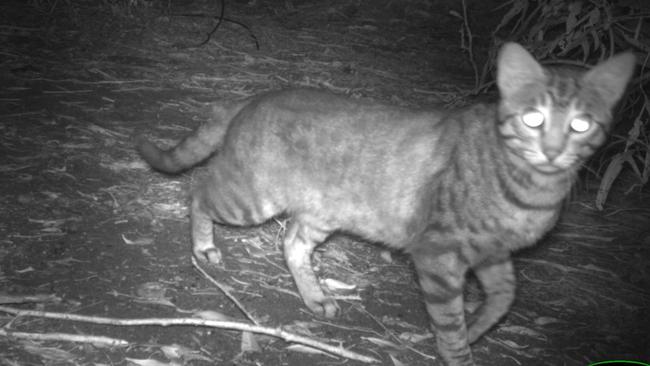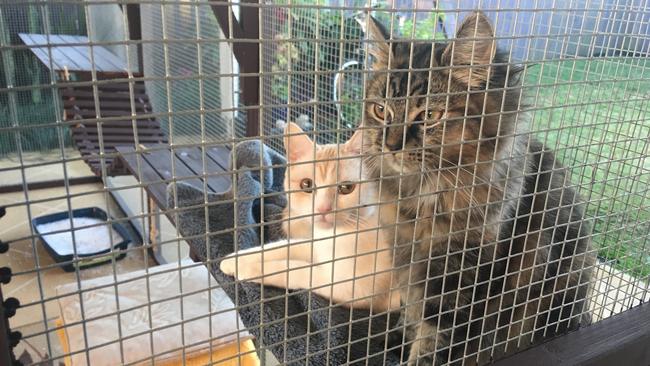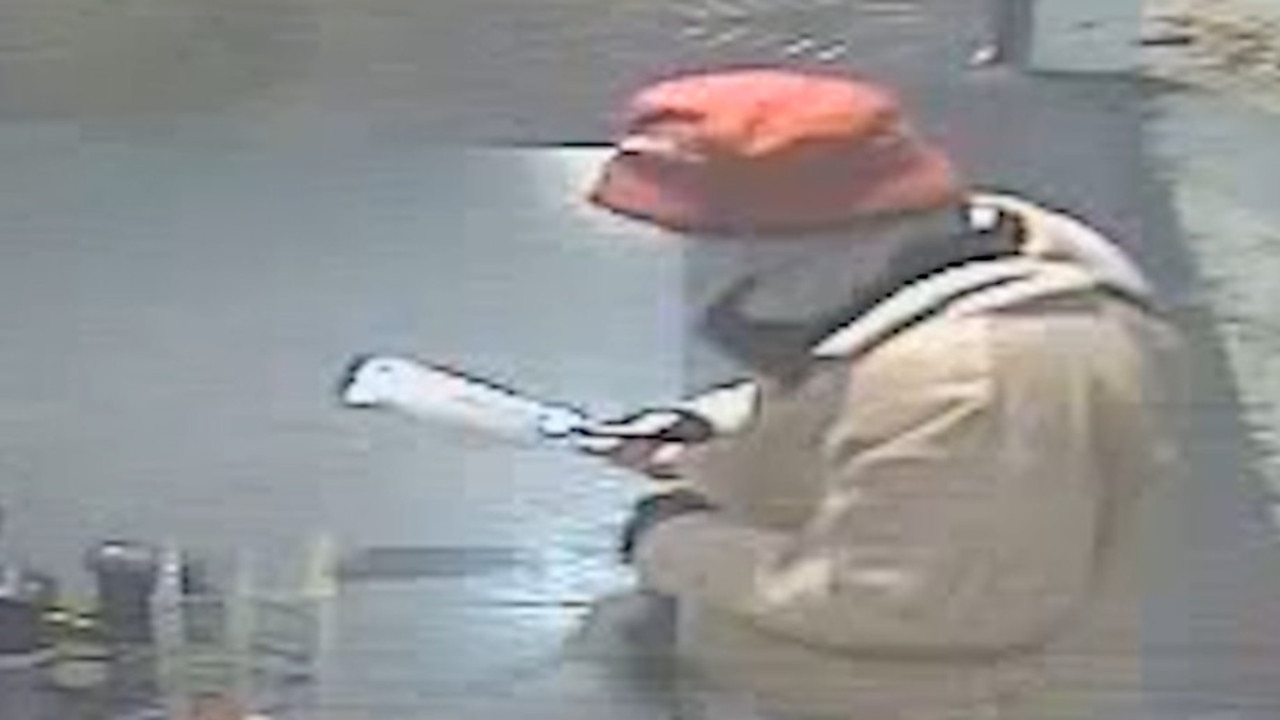Worst suburbs for feral and wandering cats in Brisbane
Brisbane’s worst suburbs for feral and wandering cat complaints for the last financial can be revealed. The council says its carried out hundreds of cat trapping programs to get rid of pest felines.
North
Don't miss out on the headlines from North. Followed categories will be added to My News.
HUNDREDS of programs to trap and kill feral cats were carried out in Brisbane last financial year and 100 fines and warnings handed down for wandering cats.
Brisbane City Council conducted 579 non-domestic at management programs in 2018/19 amid 652 complaints asking for cat trapping programs for feral cats.
Despite 613 complaints about wandering cats, the council handed down only 15 fines and 85 zero-dollar warning notices for the offence.
RSCPA Queensland says animal cruelty complaints are rising
Sharks caught and released metres from swimmers at Redcliffe
Community, Arts and Lifestyle chair Peter Matic said the council targeted cat trapping programs based on complaints from the public and known bushland and wetlands.
“A majority of these feral animals removed as part of these programs were from Inala, Moorooka, Acacia Ridge, Forest Lake and Bracken Ridge,” he said.
The most requests for cat trapping programs were from Inala, with 38, then Forest Lake (25), Bracken Ridge (20), St Lucia (18), Calamvale and Wynnum West (16 each).
Research suggests cats kill up to 1.1 billion mammals in Australia every year, and feral cats are responsible for about 815 million of those deaths.

It is also estimated that domestic and feral cats are responsible for the deaths of 400 million birds while feral cats also kill about 466 million reptiles per year.
That yearly death toll from feral cats is similar to the conservative estimate for the number of animals killed in the recent bushfires, which is also more than 1 billion.
Cr Matic said captured feral cats were humanely euthanised and domestic cats were transferred to the council’s pounds to be reunited with owners or rehomed.
He said a microchip could help lost pets be reunited with their owners, and recommended owners provide an enclosed area for their cats to protect Brisbane wildlife.
Invasive Species Council chief executive officer Andrew Cox said feral cats were the number one threat to Australia’s mammals and had caused the most mammal extinctions of any invasive species in the nation.

He said cat trapping was the only effective control measure against the ferocious hunters, and even then, the “wiliest” cats often knew to be wary of cages.
Mr Cox urged pet owners to keep cats inside “all day and all night” and desex them, and said no-one should feed stray cats.
“We know they turn wild pretty easily, they become active hunters,” he said.
He said there was one way to ensure wandering pet cats were not caught and euthanised during cat trapping programs.
“Hopefully they’re microchipped and they’ve got a collar,” he said.
WORST SUBURBS FOR CAT TRAPPING REQUESTS
Inala: 38
Forest Lake: 25
Bracken Ridge: 20
St Lucia: 18
Calamvale and Wynnum West: 16 each
Moorooka: 15
Acacia Ridge: 14
Sunnybank and Coopers Plains: 12
Wynnum, Carina Heights and Boondall: 11 each
Clayfield: 10
WORST SUBURBS FOR WANDERING CATS
Holland Park West: 33
Bracken Ridge: 26
Wynnum West: 22
The Gap: 18
Northgate, Inala, Wynnum: 17
Durack: 11
Manly West, Stafford Heights: 10
Kuraby, Gaythorne: 9
Keperra, Aspley, Zillmere: 8
Chermside, Archerfield, Clayfield, Acacia Ridge, Ferny Grove, Banyo, Annerley: 7


